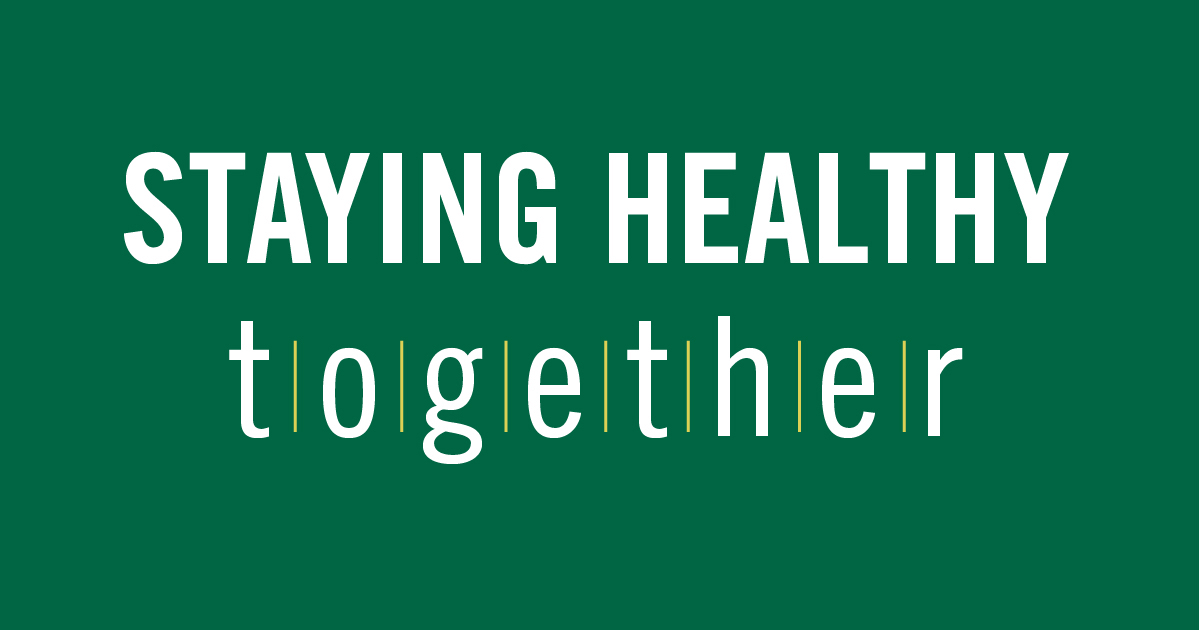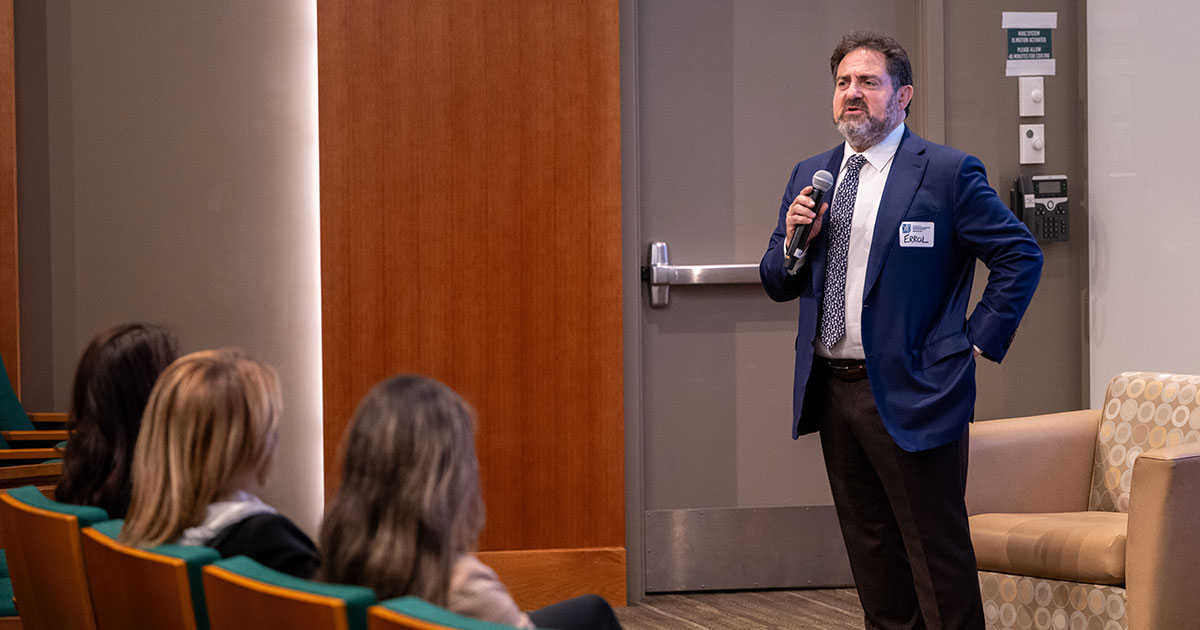Staying Healthy Together: A Q&A

As we bring Babson together this fall, our decisions are guided by a commitment to ensuring the safety and well-being of our entire community.
The Babson College return to campus plan includes several guidelines and protocols to ensure students and employees are actively monitoring and reporting symptoms that could be signs of COVID-19 infection.
But, what will testing look like? And, what about self-quarantine? We know you have questions, so we connected with the Babson Health and Wellness team to dig into the details.
Here’s what we learned.
How often will we get tested for COVID-19?
All students will be required to be tested twice in the first week upon returning to campus, then at regular intervals throughout the semester. The asymptomatic surveillance testing is at no cost for students. Individual testing will be provided by Health Services for symptomatic students and close contacts who have been identified by trained contact tracers. This testing will be billed to your health insurance company, and results will be available in 24-48 hours.
What happens if I test positive?
Students who test positive and have symptoms will need to self-isolate until
- They are fever free for three days
- They have a noted improvement in symptoms
- Ten days have passed since the onset of symptoms
What if I am asymptomatic and test positive?
Asymptomatic students who test positive will need to remain in isolation for 10 days from their test date.
What if I am in contact with someone who becomes infected?
Close contacts of a positive individual will need to self-quarantine for 14 days, even with a negative test. If symptoms develop, isolation begins from the date of the onset of symptoms, and will last at least 10 days.
What happens if I get sick while living on campus?
Students will be required to complete a daily symptom tracker. If they experience any symptoms associated with COVID-19 or any other illness, they should call Health Services to speak with a clinician.
Students who test positive, or have an illness suspected to be COVID-19, will be isolated until they are fever free for three days, have noted improvement in symptoms, and 10 days have passed since the onset of symptoms. Close contacts of the positive individual will need to self-quarantine for 14 days, even if they have a negative test.
Students who live off campus will quarantine and isolate at their off-campus residence.
How is the campus improving access to mental health resources?
Counseling and Psychological Services (CAPS) is now providing all counseling through tele-health.
If you are interested in meeting virtually with a CAPS clinician, please email counselingservices@babson.edu.
Can I still meet with a chaplain?
Yes, you can still meet with a chaplain. The majority of student meetings and interactions with religious leaders/chaplains will be virtual.
More information will be shared via community email, website, and social media. If you have any questions or concerns, please contact Director of Religious and Spiritual Life Denicia Ratley at 781-239-5969 or dratley@babson.edu.
Are advocates still available?
Yes, you can make an appointment to speak with an advocate regarding sexual and/or relationship violence via WebEx by calling 781-239-5200. Additionally, the SAFE Hotline is staffed 24/7 by trained advocates—call 781-239-SAFE(7233), or email wellness@babson.edu for WhatsApp information.
Will grad students also need to be regularly tested throughout the semester?
Yes, all students, including non-residential students, will be part of the surveillance testing program.
Will I be required to quarantine?
Self-quarantine is a period of observation to determine if any individuals who may have been exposed to COVID-19 develop symptoms. According to current guidance from the Commonwealth of Massachusetts, any visitors coming to Babson from outside of New York, New Jersey, or New England states are instructed to self-quarantine for 14 days.
Students coming to study at Babson’s Wellesley campus for the fall semester are expected to self-quarantine for 14 days prior to traveling to campus.
Students will be asked to complete an arrival form stating that they have completed the 14-day self-quarantine prior to checking in on campus. If unable or unwilling to complete this form, students will be moved to a quarantine space on campus.
All students will be tested upon arrival on campus and expected to report daily monitoring of symptoms through a tool designed specifically for our student community. In addition to testing and monitoring, residential students are expected to remain on campus for at least 14 days, without taking any trips into the surrounding community. Dining will be take-away only until September 6. As previously shared, all community members are required to wear a facial covering at all times and observe physical distancing guidelines.
Posted in Community



